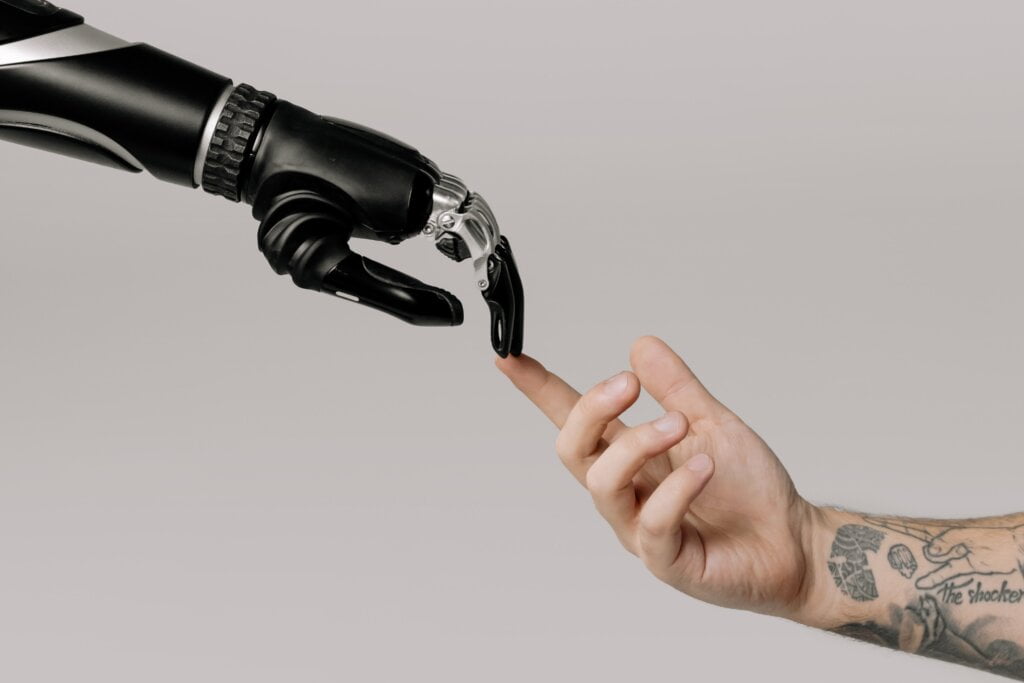The world of marketing technology (MarTech) is constantly evolving, driven by advancements in technology and changing consumer behaviours. As we step into 2023, several emerging trends are shaping the martech landscape, offering new opportunities and challenges for businesses. In this article, we will explore five key martech trends that are set to make a significant impact in 2023.
1. Artificial Intelligence (AI) Integration
Artificial Intelligence continues to revolutionise the MarTech industry, enabling businesses to gain valuable insights and enhance customer experiences. In 2023, we can expect to see increased AI integration in various MarTech applications, including chatbots, personalised recommendations, predictive analytics, and content creation. AI-powered algorithms will enable marketers to analyse vast amounts of data, automate repetitive tasks, and deliver hyper-personalised experiences to consumers, leading to improved customer satisfaction and increased conversion rates.


Here are a few examples of AI integration in MarTech:
AI-powered Customer Segmentation
AI can analyse vast amounts of customer data to identify patterns and segment customers based on their preferences, behaviours, and demographics. This enables businesses to create targeted and personalised marketing campaigns that resonate with specific customer segments. AI algorithms can identify similarities and differences among customers, helping businesses tailor their messaging and offers to maximise engagement and conversion rates.
Chatbots and Virtual Assistants
Chatbots and virtual assistants powered by AI have become increasingly prevalent in customer service and marketing. These AI-driven conversational interfaces can provide instant responses to customer inquiries, assist with product recommendations, and even execute transactions. By integrating AI-powered chatbots into their websites, businesses can enhance user engagement, provide 24/7 support, and deliver personalised experiences, all while reducing the workload on customer service teams.
Predictive Analytics
AI-powered predictive analytics can help businesses forecast customer behaviour, market trends, and campaign performance. By analysing historical data, AI algorithms can identify patterns and make predictions on future outcomes. Marketers can leverage this capability to optimise their marketing strategies, allocate budgets more effectively, and anticipate customer needs. Predictive analytics can also help identify cross-selling and upselling opportunities, leading to increased revenue and customer satisfaction.
Content Generation and Personalisation
AI technology is being used to generate and optimise content at scale. Natural Language Processing (NLP) algorithms can analyse data, create compelling narratives, and automate content creation processes. AI can also personalise content by dynamically adapting it to individual user preferences and behaviour. By leveraging AI for content generation and personalisation, businesses can deliver relevant and engaging content to their audience, fostering higher levels of user engagement and increasing the effectiveness of their marketing campaigns.
These examples demonstrate how AI integration is revolutionising the MarTech landscape in 2023. By leveraging AI-powered solutions, businesses can unlock valuable insights, automate processes, deliver personalised experiences, and improve overall marketing effectiveness. As AI continues to advance, it is expected to play an increasingly significant role in shaping the future of MarTech.
2. Voice Search Optimisation
The rise of voice-enabled devices and virtual assistants has given birth to a new frontier in search behaviour. With the increasing popularity of voice search, businesses must adapt their marketing strategies to optimise for voice-based queries. In 2023, MarTech platforms will focus on voice search optimisation, ensuring their content and advertising campaigns align with the unique demands of voice-based interactions. Marketers will need to optimise website content for long-tail conversational keywords and leverage natural language processing to provide accurate and relevant responses to voice queries.
With the growing popularity of voice assistants such as Amazon Alexa, Google Assistant, and Apple Siri, businesses are integrating AI to optimise their presence in voice search. AI-powered voice recognition and Natural Language Processing enable voice assistants to understand and respond to user queries accurately. By optimising their content for voice search queries, businesses can improve their visibility in voice search results, reach a broader audience, and enhance user engagement.
3. Privacy and Data Protection


Data privacy concerns and regulations have gained significant attention in recent years, prompting businesses to prioritise user privacy and data protection. In 2023, MarTech trends will continue to revolve around privacy-conscious practices. Marketers will need to adopt technologies and strategies that respect user privacy, such as implementing secure data storage and complying with data protection regulations like the General Data Protection Regulation (GDPR). Ethical data collection and transparent communication about data usage will be paramount for maintaining consumer trust and avoiding potential legal ramifications.
Here are a few examples of privacy and data protection as emerging MarTech trends in 2023:
Enhanced Consent Management
As data privacy regulations become more stringent, businesses are focusing on implementing robust consent management systems. These systems enable users to provide informed consent for the collection and use of their personal data. Emerging MarTech solutions offer features such as granular consent controls, preference centres, and transparent data handling practices. By providing users with more control over their data, businesses can build trust and demonstrate their commitment to privacy.
Secure Data Collection and Storage
Martech platforms are increasingly prioritising secure data collection and storage practices. This involves implementing encryption protocols, access controls, and other security measures to protect sensitive user information. Additionally, businesses are adopting data minimisation techniques, only collecting and retaining the data necessary for their marketing purposes. By prioritising data security, businesses can mitigate the risks associated with data breaches and unauthorised access.
4. Customer Journey Orchestration
Customer journey orchestration is an emerging trend in martech that focuses on delivering personalised and seamless experiences across multiple touchpoints. In 2023, martech platforms will leverage advanced customer data platforms (CDPs) and marketing automation tools to map and optimise customer journeys. By analysing customer interactions and behaviours, businesses can identify key touchpoints, personalise messaging, and deliver consistent experiences across channels. Customer journey orchestration will enable marketers to create cohesive and engaging campaigns that resonate with customers throughout their buying journey, resulting in higher customer satisfaction and loyalty.
5. Augmented Reality (AR) and Virtual Reality (VR)
The immersive experiences offered by augmented reality (AR) and virtual reality (VR) technologies have the potential to revolutionise the way marketers engage with their audience. In 2023, MarTech will witness an increased adoption of AR and VR in marketing campaigns, product demonstrations, and customer experiences. By leveraging AR and VR, businesses can provide virtual try-on experiences, interactive product demonstrations, and virtual tours, allowing customers to engage with products or services in a more immersive and interactive manner. These technologies will help drive customer engagement, boost brand loyalty, and increase conversion rates.
As the MarTech landscape continues to evolve, businesses must stay abreast of emerging trends to remain competitive. In 2023, the integration of AI, voice search optimisation, privacy and data protection, customer journey orchestration, and AR/VR technologies will reshape the way marketers engage with their target audience. By embracing these emerging trends, businesses can enhance their marketing strategies, deliver personalised experiences, and achieve sustainable growth in an increasingly digital and customer-centric world.



